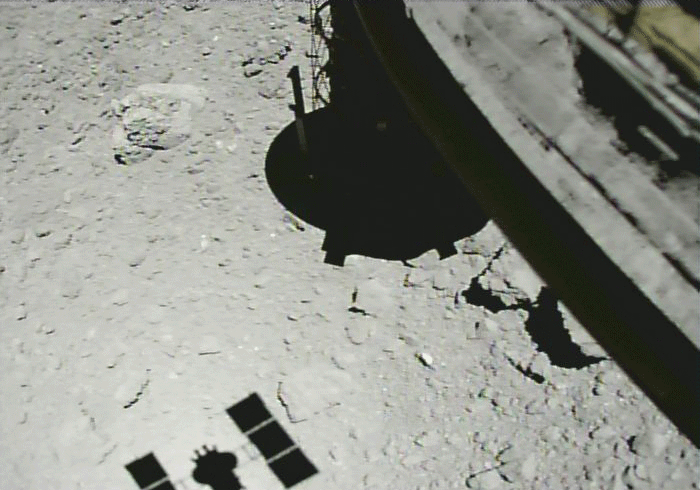
Two essential compounds for life exist in the dirt of an asteroid.
Scientists peered into the precious caches that Japan’s Hayabusa2 spacecraft collected from asteroid Ryugu in 2019 and dropped off to Earth in December 2020. The newest analysis of this space dust, described in a new study published Tuesday in Nature Communications, reveals the presence of vitamin B3 (also known as niacin). What’s more, Ryugu specimens also contain uracil. It’s an essential building block of RNA (ribonucleic acid), a compound that aids the expression of genes.
Vitamin B3 makes us feel alive, and uracil makes life as we know it possible. Vitamin B3 enters the body through food, and though it doesn’t permanently stay within us, its water-soluble presence helps the body perform tasks like convert food into energy, reduce inflammation, and produce hormones for sex. Uracil is one of four bases for RNA, which carries out cellular functions and is found in all living cells.
Researchers think that if niacin and uracil are found on Ryugu, it’s yet another sign that life on Earth may owe a debt of gratitude to the primordial asteroids billions of years ago that reached our young planet.
“The present study strongly suggests that such molecules of prebiotic interest commonly formed in carbonaceous asteroids including Ryugu and were delivered to the early Earth,” the research team wrote in the paper. It’s even possible, the authors write, that Ryugu and uracil-bearing meteorites on Earth broke off from the same parent body. Where that object got the organic material and by which processes, is a major question.
Scientists have been searching for life’s ingredients in space rocks for at least half a century. Uracil, for instance, is one of several pyrimidines (one of two categories for RNA and DNA building blocks) found in the Orgueil meteorite, which landed in France in 1864 and was analyzed alongside Ryugu in the new work.
An initial study of Ryugu’s dirt showed that it had organic compounds, according to the paper. And the researchers were further motivated by the knowledge that other space rocks had traces of nucleobases like uracil, so finding this life-essential compound in Ryugu dirt was a possibility.
What’s revolutionary with Ryugu’s samples is that the Hayabusa2 spacecraft and other retrieval missions are providing samples that are pristine — they never engaged in the super-hot trauma of entering Earth’s thick atmosphere, nor mingled with the elements and contaminants on the planet’s surface. They are raw.
And that matters when trying to pry open the secrets to life’s origins. Some molecules form one way, others emerge by other means. This paper is the newest attempt to make educated guesses about life’s equation.
“The origin of life on Earth is a contentious issue, with a variety of potential environments being proposed, including oceanic hydrothermal vents and terrestrial hot springs. However, one thing that is certain, is that life would have required amino acids at some point in order to synthesize proteins, which are responsible for a number of biological functions, such as catalyzing metabolic reactions, the replication of DNA, transportation of molecules and giving structure to cells and organisms. While it may have been possible to generate amino acids on the early Earth… an extraterrestrial origin for at least some of the building blocks of life has been proposed,” wrote the authors of a related study published Friday in Nature Communications.
The next chapter of this pursuit will begin later this year, when NASA’s OSIRIS-REx retrieval mission to asteroid Bennu delivers a fresh batch of its space dust to the desert of Utah. Bennu itself may be from the same parent body as Ryugu, offering exciting opportunities to compare between the samples.







